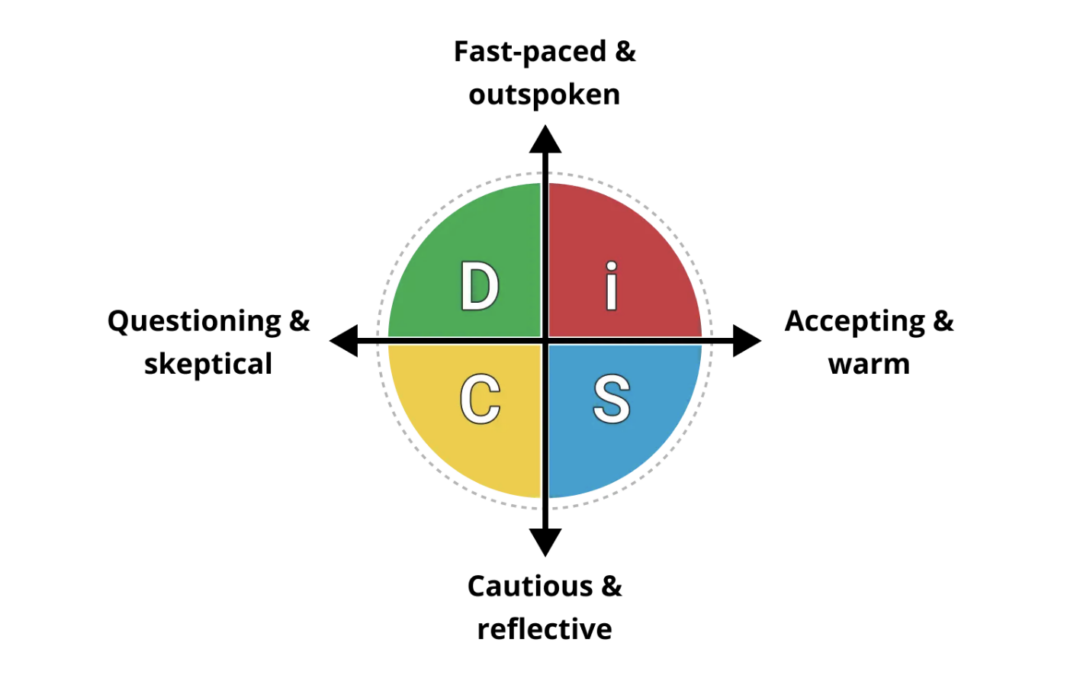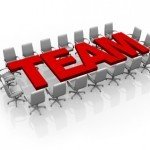
#40 – Navigating Leadership in 2025: Embracing Five Paradigm Shifts
Happy New Year, everyone, and welcome to another edition of Impactful Teamwork! I’m thrilled to have you here at the start of 2025. I hope you had an incredible holiday season filled with rest, reflection, and relaxation.
At the beginning of a new year, many of us set ambitious resolutions, but we often forget one crucial element: creating space for these goals to flourish. As you map out your 2025 aspirations, I encourage you to consider not only what you want to start doing but also what you need to stop doing. What projects, habits, or commitments can you let go of to make room for meaningful progress?
As we embark on this year, I want to share some insights from recent research by McKinsey & Company that align perfectly with what we’ve been discussing on this podcast. The study explores the leadership traits that businesses need to thrive in today’s unpredictable and fast-changing world. Let’s dive into the five key leadership traits that will define success in 2025.
1. From Profit to Impact: Leading with Vision and Purpose
In the past, leadership was primarily about maximising profits for shareholders. Success was measured in financial terms, and leaders often operated with a mindset of preservation—focusing on stability and predictability. However, this approach no longer aligns with the demands of today’s complex world.
Modern leaders must move beyond profit and focus on making a holistic impact. This shift requires visionary leadership that boldly reimagines the future. Leaders need to articulate a resonant purpose that inspires both their teams and stakeholders. By embracing a mindset of possibility, leaders can drive meaningful change and create value that extends beyond the bottom line.
Take Netflix as an example. Fifteen years ago, Netflix was primarily a DVD rental service. But its co-founder and CEO, Reed Hastings, envisioned a future where the company would become a global entertainment distributor. This bold vision guided Netflix through its transformation into a streaming giant, creating tremendous value for both its shareholders and its audience. Leaders in 2025 need this kind of visionary courage.
2. From Competition to Co-Creation: Embracing Abundance
Traditional leadership often revolved around competition—fighting for limited resources and protecting territory. This scarcity mindset led to silos within organisations, with teams competing against one another rather than working together.
The new leadership paradigm calls for co-creation. Leaders must act as architects who foster collaboration and innovation, co-creating new value with a mindset of abundance. This shift requires leaders to break down silos, build inclusive environments, and encourage cross-functional collaboration.
By embracing co-creation, organisations unlock the full potential of their people. Psychologically safe workplaces, where individuals feel valued and empowered, enable teams to contribute their best ideas and energy. Leaders must focus on creating these environments to thrive in 2025.
3. From Command to Collaboration: Leading Through Partnership
Hierarchical, command-and-control leadership structures are increasingly outdated. In the past, leaders were seen as directors who issued orders and managed tasks with a mindset of authority. While this approach may have worked in simpler times, today’s challenges demand a more collaborative approach.
Leaders in 2025 need to transition from command to collaboration. Acting as catalysts, they must empower teams to work in decentralised networks. This collaborative leadership style fosters a mindset of partnership, where everyone has a voice and contributes to the organisation’s success.
High-performing teams thrive when leadership is shared. By stepping back from the role of “controller,” leaders can encourage their teams to take ownership, innovate, and problem-solve. Collaboration is no longer a nice-to-have; it’s essential for navigating complexity and driving sustainable growth.
4. From Control to Evolution: Adapting Through Discovery
Certainty and control were once hallmarks of effective leadership. Leaders were expected to plan, direct, and execute with precision, operating within well-defined structures. However, in today’s unpredictable world, this mindset is no longer viable.
The leadership trait of 2025 is adaptability. Leaders must embrace uncertainty and adopt a mindset of discovery. Instead of clinging to control, they need to become coaches who guide their teams through rapid learning and experimentation. This shift involves evolving processes, challenging assumptions, and being open to new possibilities.
The pace of change is accelerating, and leaders who resist it risk being left behind. By fostering a culture of curiosity and continuous improvement, leaders can ensure their organisations remain agile and resilient in the face of disruption.
5. From Expectations to Wholeness: Showing Up Authentically
In traditional leadership models, professionalism often meant conforming to rigid expectations. Leaders were expected to present a polished, impersonal facade that prioritised conformity over individuality. This approach created a disconnect between leaders and their teams.
In 2025, leaders must embrace authenticity and show up as their whole selves. This shift involves moving from a mindset of expectation to one of wholeness. Leaders need to prioritise genuine connections, foster trust, and demonstrate vulnerability. By doing so, they create a culture where team members feel seen, valued, and motivated to bring their full selves to work.
Authentic leadership is not about abandoning professionalism; it’s about integrating humanity into the workplace. When leaders model authenticity, they inspire their teams to do the same, creating stronger relationships and fostering a sense of belonging.
Final Thoughts: Transforming Leadership for the Future
The five leadership traits outlined here represent a significant paradigm shift. Moving from profit to impact, competition to co-creation, command to collaboration, control to evolution, and expectations to wholeness will not be easy. But these shifts are essential for creating thriving organisations in 2025 and beyond.
Leadership transformation begins with a willingness to rethink long-held assumptions and embrace new ways of working. It’s not about abandoning traditional skills but building on them to expand your capacity as a leader. By doing so, you can inspire your teams, create value for all stakeholders, and navigate the challenges of our rapidly changing world.
I’d love to hear your thoughts. Which of these leadership traits resonate most with you? What shifts will you focus on in 2025? And how can I support you in developing these skills within your team?
If you’re ready to take the next step, I offer innovative programs—some involving horses, some not—designed to help leaders transform their mindsets and behaviors. Let’s make 2025 a year of growth, impact, and possibility!
Wishing you a dynamic and thriving year ahead. Let me know how you’re embracing these shifts in your leadership journey.
Show Notes:
Here are the highlights from this episode:
00:00 Welcome to Impactful Teamwork 2025
00:23 Reflecting on New Year’s Resolutions
01:02 Creating Space for New Goals
02:07 Research Insights from McKinsey
02:48 Challenges and Opportunities in Leadership
03:54 The Evolution of Leadership Structures
05:15 New Organizational Approaches
07:43 Five Critical Leadership Shifts
08:49 From Profit to Impact
11:51 From Competition to Co-Creation
13:08 From Command to Collaboration
13:42 From Control to Evolution
14:40 From Expectations to Wholeness
15:43 Embracing Paradigm Shifts in 2025
16:45 Inspiring Leadership Transformation
17:39 Final Thoughts and Encouragement

Julia Felton (aka The Business Wrangler) is the founder of Business HorsePower. Business leaders, entrepreneurs and executives hire her to accelerate their business performance by harnessing the energy of their people to work more collaboratively together. By aligning purpose with actions the team achieves exponential results as everyone starts pulling in the same direction.
Julia believes that business is a force for good and through designing purpose-driven businesses that leverage the laws of nature, and the herd, you can create businesses founded on the principles of connection, collaboration and community that make a significant impact in the world.














